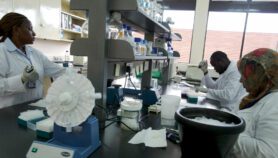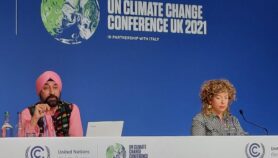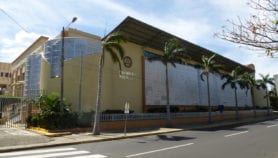Send to a friend
The details you provide on this page will not be used to send unsolicited email, and will not be sold to a 3rd party. See privacy policy.
The renaming of TWAS reflects changes in development. But it must ensure that its original priorities are maintained, says David Dickson.
When the late physicist and Nobel Laureate Abdus Salam set up what was then called the Third World Academy of Sciences, known familiarly as TWAS, in the early 1980s, he had a clear objective in mind — to raise the status of basic science in the eyes of political leaders of the world's developing countries.
In an interview in 1984, Salam recalled writing three years earlier to the heads of 13 such countries who planned to attend a major North–South summit in Cancun, Mexico, highlighting the importance of investing in science. Just one, India, had bothered to reply. "Third World countries have to realise that basic science is a legitimate activity for them to support," he told me during the interview.
As the academy approaches its 30th anniversary next year, its vitality as an organisation is clear. It now has more than 1,000 fellows from across the developing world, and has avoided concerns about elitism that had made me uneasy at the time. It has done so by organising numerous training programmes for young researchers and actively promoting South–South research collaborations on socially important issues such as the impact of climate change, among other activities.
But it now faces a new challenge — how to define its role at a time when a simplistic division into rich and poor countries no longer reflects global science. Several of its prominent members, in particular Brazil, China and India, have become scientific powers in their own right. At the same time, for many of the world's poorest countries, both spending on science and developing the capacity to put scientific results to practical use remain low priorities.
Name changes
The latest move to adapt to this new environment took place in Tianjin, China, last month, when the academy agreed to change its name to The World Academy of Sciences (TWAS). This follows a previous name change in 2004, when it decided to call itself The Academy of Sciences for the Developing World (although, rather confusingly, retaining the acronym 'TWAS').
The term 'Third World' was originally coined to describe countries that belonged to neither the Western nor Soviet blocs that had confronted each other during the Cold War. But it became an anachronism when the Cold War ended in 1989, while being seen by many, particularly in the growing economies of Latin America, as somewhat derogatory, since it implied a global pecking order.
However, even the 2004 title came under criticism, since it appeared to make an explicit distinction between the science that is done in developed and developing countries. That this line is increasingly difficult to justify was a key factor behind the latest name change, which was unanimously approved in Tianjin.
The new title, The World Academy of Sciences, also has the advantage of legitimising the retention of the original acronym, even if the prominence of the initial T remains something of an anomaly.
Maintaining priorities
The danger, of course, is that the new name implies a body of equal relevance to scientists in all countries, whether rich or poor. That means that its mission of advancing science in countries that are — and remain — particularly needy, will have to be explained every time the organisation is introduced to government ministers or journalists unfamiliar with its activities.
TWAS officials are quick to emphasise that the change in title does not signify a change in mission. They point out, for example, that the academy's rules will still require 85 per cent of its elected members to come from the developing world, and that the advancement of science in these countries will explicitly remain its primary mission.
It will be up to the academy's new president, Bai Chunli, who is already president of the Chinese Academy of Sciences, to ensure that there is no 'mission creep' (change from its original goals), and that the priorities of the organisation, whatever its title, remain fixed in promoting science in the world's poor countries.
China's commitment of US$1.5 million to TWAS's endowment fund, making it the largest single donor to date, ahead of Brazil, indicate the importance it attaches to the academy's activities. So, too, do supportive comments made at the Tianjin meeting by Chinese president Hu Jintao.
Under World Bank definitions, based on average income per capita, Brazil, China and India remain defined as developing countries (while specifying that "classification by income does not necessarily reflect development status") and thus continue to qualify for full participation in TWAS.
But it is essential that the split between the scientific capabilities of rich and poor — and the consequent dependence of the latter on the former, which motivated Salam to create TWAS 30 years ago — does not become reproduced within the developing world itself.
It is now up to Bai and his council to ensure that this does not happen. If there is any evidence that it is beginning to occur, then deeper changes than just a change in name may be required to keep Salam's dream alive. But hopefully that will not be necessary.
In Perspective is a new column representing personal comment from David Dickson on topical issues at the intersection between science, communication and development policy.

David Dickson is a science journalist who has worked on the staffs of Nature, Science and New Scientist, specialising in reporting on science policy. He was the founding director of SciDev.Net 2001–2011.













